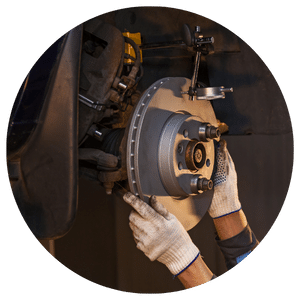
Top Auto Repairs Your Customers Are Most Skeptical About
As an auto repair shop owner, you know that building trust with customers is essential for long-term success. In an industry often plagued by skepticism and misconceptions, it's crucial to address common concerns and showcase your shop's commitment to quality service.
By addressing these concerns head-on and using innovative tools like digital vehicle inspections, you can instill confidence in your customers and set your business apart from the competition. Let's dive in and discuss the repairs that customers are most skeptical about and how to overcome these doubts effectively.
Understanding Customer Skepticism
We know you're no stranger to the concept of customer skepticism. You've witnessed customers questioning the legitimacy of recommended repairs, doubting the transparency of the process, and worrying about overcharging. But understanding what's behind their hesitancy is key to effectively addressing concerns and continuing to build trust with your customer base.
In the past, you've probably encountered scenarios that look a little like these:
- Doubts about Repair Recommendations: Customers might have questioned whether the recommended repairs were
 genuinely necessary or if they were being upsold on unnecessary services.
genuinely necessary or if they were being upsold on unnecessary services. - Transparency Concerns: You've likely encountered customers who felt left in the dark, wanting more clarity about the diagnostic process, the specific issues with their vehicles, and how repair costs were determined.
- Overcharging Perceptions: The prevailing belief that repair shops tend to overcharge for parts and labor may have influenced the way some customers viewed your pricing.
- Lack of Automotive Knowledge: Customers may have expressed uncertainty or apprehension during the repair process due to their limited knowledge about the mechanics of their vehicles.
So, why do customers tend to be skeptical about auto repairs?
Customer skepticism in the auto repair industry is rooted in a combination of factors, and understanding these can shed light on the persistent doubts that vehicle owners often harbor. Here are some key reasons behind this skepticism:
Lack of Transparency: One of the primary drivers of customer skepticism is the perceived lack of transparency in the auto repair process. Customers frequently find themselves in situations where they feel left in the dark about the nature of their vehicle's problem or the cost of repairs. This lack of openness can breed mistrust, making them question whether they are getting the full story or if there are hidden fees involved.
Complexity of Repairs: The ever-increasing complexity of modern vehicles plays a significant role in customer skepticism. Many customers lack in-depth knowledge about the intricacies of automotive systems, especially with advanced electronics and computerized components. This lack of understanding can lead to feelings of vulnerability and doubt when faced with complex repair recommendations.
Past Negative Experiences: Past negative encounters with unscrupulous or dishonest repair shops can leave lasting scars in the minds of customers. These negative experiences may have included overcharging, recommending unnecessary repairs, or shoddy workmanship. Even if your shop is committed to honesty and quality service, these past interactions can lead to a hesitancy to fully trust any repair shop.
Recognizing these factors and proactively addressing them is essential for auto repair shop owners looking to establish trust with their customers. It's through transparency, clear communication, and a commitment to quality service that you can gradually overcome these hurdles and build lasting credibility in the eyes of your clientele.
The Ongoing Impact of Skepticism on Your Auto Repair Business
Given your experience with customer skepticism, you're well aware of the implications for your auto repair business:
- Loss of Business: Skeptical customers may have chosen to delay or forego necessary repairs, which likely resulted in lost revenue for your shop. These instances can have a direct impact on your profitability and overall shop success.
- Negative Word-of-Mouth: Unsatisfied customers may have shared their skepticism and negative experiences with friends and family, affecting your shop's reputation and potentially deterring new customers.
- Decreased Customer Loyalty: Maintaining a loyal customer base can be more challenging as skepticism prevails. Returning customers are the lifeblood of the auto repair industry, and skepticism can erode the loyalty you've worked hard to establish.
Common Auto Repairs Customers Are Skeptical About
When it comes to certain services, you've likely encountered a decent amount of skepticism from customers. To address these concerns head-on, it's important to know how to mitigate hesitancy from your customer base and build trust. Here, we'll explore some of the most common auto repairs that tend to raise concerns among customers and provide you with actionable tips and techniques to overcome these doubts.
 Brake Repairs
Brake Repairs
Brake repairs are a common source of customer skepticism. Many customers fear overcharging, a lack of transparency, and question the quality of brake parts. To build trust in this area, it's essential to provide transparent, itemized estimates, employ digital vehicle inspections to show the condition of brakes, and emphasize the use of high-quality brake components.
Transmission Repairs
Transmission repairs often come with misconceptions that can lead to customer doubt. These include the belief that such repairs will be excessively expensive, concerns about the complexity of transmission systems, and suspicions of overdiagnosis. To gain customer trust, educate your customers about the necessity and costs of transmission repairs, provide clear diagnostic insights through digital tools, and highlight the expertise of your technicians.
Engine Repairs
Engine repairs can raise skepticism due to fears of overhauling the engine unnecessarily, doubts about the reliability of repairs, and concerns about costs. To foster trust, ensure thorough diagnosis and engage customers in understanding the issue. Offer clear warranties on engine repairs and share success stories to demonstrate your shop's effectiveness.
Electrical System Repairs
The complexity of electrical systems can lead to skepticism regarding diagnosis accuracy, the quality of electrical parts, and the perceived cost of repairs. To alleviate these doubts, explain your diagnostic process clearly, assure customers about high-quality electrical components, and emphasize the continuous training of your technicians in handling electrical system repairs.
Suspension and Steering Repairs
Suspension and steering repairs often raise skepticism, primarily due to noise and vibration issues, concerns about overpricing, and worries about hidden or unnecessary repairs. To build trust in this area, provide a detailed explanation of the issues and the necessity of repairs, employ visual evidence through digital inspections, and involve customers in the decision-making process.
Addressing skepticism with these common auto repairs is essential to maintain the trust of your customers and ensure the continued success of your auto repair business.
Overcoming Skepticism with Digital Vehicle Inspections
Digital vehicle inspections (DVIs) are revolutionizing the auto repair industry and proving to be a resourceful tool in addressing customer skepticism. These modern, technology-driven assessments have gained popularity among shops and customers alike due to their capacity to enhance transparency, improve communication, and provide visual evidence. Customers today expect more openness and trust in the repair process, and DVIs offer just that.
DVIs bolster transparency by allowing customers to see precisely what technicians see, with images and videos showcasing the issues in their vehicles. Real-time communication keeps customers informed throughout the repair process, reducing misunderstandings and enhancing accuracy.
Digital vehicle inspections act as educational tools, empowering customers with knowledge about the necessity of repairs and potential consequences of delay. Notably, these inspections also enable the showcasing of "before-and-after" evidence, reinforcing the effectiveness of repairs.
By harnessing the power of DVIs, you can combat skepticism and build enduring trust with your customers, ultimately securing the long-term success of your auto repair business. If you're ready to see digital vehicle inspections in action, be sure to reach out to our team today to schedule a demo.


